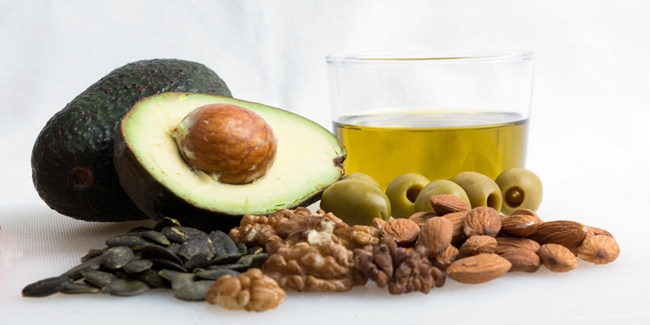Fasting during Ramadan: What dietitians need to know & how to help your clients

By Mohamed Rezk | May 26, 2016
Ramadan is the one month per year where Muslims fast from dawn until sunset every day by refraining from food, water, smoking, medications, and even gum. Pregnant and breastfeeding women, children, seniors, and those on important medications or requiring nutrition care (such as people with diabetes, renal failure, or patients on tube feeds) are exempt from fasting.
During this month, Muslims spend more time getting closer to God, refrain from bad habits, and focus on spiritual growth. This year, Ramadan starts on June 7
th. In Canada, Muslims will be fasting 16-17 hours per day, which allows for only 7-8 hours to nourish their bodies and sleep. While Muslim countries cut down their workdays by half during Ramadan, this is not the case in Canada. The combination of high expectations at work or school, long fasting hours, and poor nutrition could be a disaster for Muslims’ health.
The only variable within control for Muslims during Ramadan is nutrition. If we, as dietitians, manage to improve our client’s nutrition for the hours they can eat, then we will maximize their productivity and help them emerge from Ramadan feeling well. Encourage your Muslim clients to complete blood work pre and post Ramadan as a tool for measuring their health and the effects of fasting. It provides interesting insights!
When counselling Muslim clients, it’s important not to tell them that fasting is unhealthy or wrong for them (unless they are part of the exempt population) as it will be viewed as disrespectful. No studies have demonstrated that fasting during Ramadan is dangerous for the healthy population.
Focus on what your client should be eating and the frequency of meals. The key here will be getting in enough calories, micronutrients, and water. Do so by encouraging 4-5 small meals, with two hours at most in between. The rest is simply filling in those meals with the best choices.
Here are five key considerations when working with clients participating in Ramadan:
1) Understand fasting & medical issues
You will come across many Muslims with medical conditions who still choose to fast to fulfil their religious obligations or spiritual desires. The biggest concern for health care professionals is patients on important medications who choose to fast and skip them. As the Islamic faith forbids Muslims from partaking in an activity that causes physical self-harm, this could be used to illustrate that a client skipping medications may be acting against religious advice.
Use motivational interviewing. For example, “I heard that fasting is allowed as long as it causes no harm?” Followed by, “Skipping your medication may cause you severe health problems, how do you feel about that?”
2) Breaking the fast: Become familiar with common practices
Breaking the fast is one of the most important meals and is comparable to breakfast. The Muslim Prophet Muhammad advised us to fill a third of our stomach with food, a third with water, and leave a third empty. This ensures hydration and prevents overeating, which is a common problem while breaking the fast.
A common recommendation is to eat 5-6 dates soaked in one cup of milk. Many Muslims already do this but it’s neat to explain the science behind it: Dates are a potassium dense food, which aids in hydration and restores electrolyte balance. Milk is high in calcium, and water, and is balanced in macronutrients. This combination is perfect for restoring energy.
After breaking the fast with a snack, such as the dates and milk, it is recommended that Muslims go and complete sunset prayer (which usually takes 5-10 minutes) before they sit down to eat their main meal. This allows the body to absorb some of the nutrients and suppresses extreme hunger.
 3) The importance of snacking
3) The importance of snacking
It is recommended to eat at least two small snacks between breaking the fast and going to sleep. Since the window for eating is tiny, it is best to focus on faster digesting foods.
For example:
- Proteins with high absorption factors, such as egg whites, fish, skinless chicken, and whey protein.
- Nutritious carbohydrates such as fruits and whole grains.
The last snack before going to bed should be higher in complex carbohydrates and good fats such as avocados, nuts, and seeds.
 4) Suhour: Maximizing energy for the day
4) Suhour: Maximizing energy for the day
“Suhour” is a very important meal for fasting Muslims. This is when Muslims wake up 1-2 hours before their fast begins to eat one last meal (between 2-3:30 am). If this meal is properly balanced, it can help those fasting to remain high energy for the morning-noon portion of the day.
Advise your clients to prepare this meal before going to bed so they can sleep for as long as possible. A meal high in complex carbohydrates, fibre, slower digesting protein (such as the casein in Greek yogurt), and good fats is ideal to slow gastric emptying.
5) Putting it together: One-day meal plan example
- 8:50 pm (breaking fast): 5-6 dates soaked in 1-cup milk or small soup
- 8:55 pm: Complete sunset prayer
- 9:05 pm (main meal): Skinless chicken breast + 1-cup brown rice + sautéed veggies with olive oil, and a fruit for dessert + 1-cup water or soup
*2-cups water
- 10:30 pm (snack #1): Fruit with low fat yogurt + 1-cup water
*2-cups water
- 11:30 pm (or 15 min before bedtime): Half-cup rolled oats + walnuts + blueberries + 1-cup milk or kefir + 1-cup water
- 3:10 am (Suhour: 20 min before holding fast): Fava beans + eggs + ½-1 avocado + sprouted grain bread + Greek yogurt for dessert + 1-2 cups water
Ramadan provides a chance for Muslims to “cleanse” their lifestyle from bad eating habits and junk food. Since the time for eating is so small, it is important for those that are fasting to cut out nutrient poor foods and focus on eating nutritious ones.
The eating recommendations during Ramadan reflect a normal healthy lifestyle but over a condensed period. After Ramadan, advise your clients to continue these healthy habits over the course of a normal day. I have used Ramadan as an opportunity to start to develop a healthier lifestyle for some of my clients who come to me ready to change.

Mohamed Rezk completed a B.Sc. in Biomedical Sciences from the University of Waterloo before completing his dietetics degree at Mount St. Vincent University. Mohamed currently works in his private practice, Re-Direct Nutrition Counselling, in Toronto and has a very strong interest in gastrointestinal diseases. He specializes in developing healthy and balanced lifestyles for his clients through behavioural reading & change. Mohamed grew up in Egypt and moved to Canada at the age of 20. This experience helped him realize the importance of learning about other cultures to help make his counselling more effective. You can reach Mohamed at
mohamed@redirectnutrition.com. He also blogs on his website:
www.redirectnutrition.com.
Back to Practice Blog